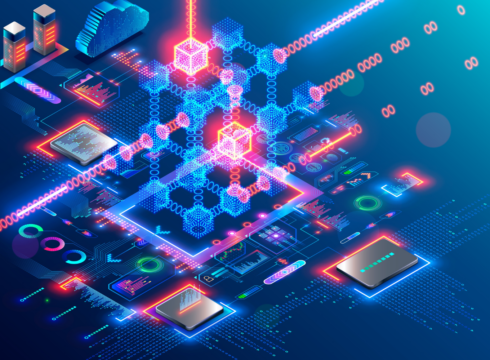As we shift from the fourth industrial revolution to the fifth, a ‘for-benefit’ approach is needed to lead technological change with inclusion and sustainability in mind
Frontier technologies such as blockchain could promote development and inclusivity if governments implement policies that maximise their potential benefits while mitigating harmful outcomes
Emerging technologies, including increasing automation and the integration of physical and virtual worlds, can produce momentous outcomes for a more inclusive society worldwide
Inc42 Daily Brief
Stay Ahead With Daily News & Analysis on India’s Tech & Startup Economy
The world today has enough resources to ensure a basic standard of living for each and every person. Yet in reality, we are divided between the haves and have-nots. Global inequality continues to remain skewed in favour of the rich as millions of people live below the poverty line.
As a founder in the blockchain ecosystem, I call on the world to consider a paradigm shift that moves from ‘for-profit’ to ‘for-benefit’. I call on the world to shift the focus from the fourth industrial revolution’s idea of profit maximisation and crony capitalism to a more sustainable and inclusive approach and to think about the fifth-industrial revolution.
The Fifth Industrial Revolution will do this, providing frontier technologies such as blockchain could promote development if governments implement policies that maximise their potential benefits while mitigating harmful outcomes. If this is not followed through, the downside is that technological innovations could worsen existing inequalities, as has occurred with previous waves of technological change.
The entire spectrum of emerging technologies, including increasing automation and the integration of physical and virtual worlds, together with artificial intelligence, robots, and gene editing, among others can produce momentous outcomes for a more inclusive society worldwide.
Financial Inclusion
One method that can foster inclusivity is through the availability of financial services to the unbanked. Financial products and services drive the world’s development and reduce poverty. However, more than 1.7 Bn individuals globally currently lack the most basic financial services and, therefore, cannot adequately invest in their health, education, and entrepreneurship.
This could include facilitating remittances for migrants seeking to transfer small amounts of money overseas, or it may mean providing a decentralised global bank account relieving financially excluded individuals from having to set one up with formal financial institutions resulting in blockchain providing the basis for a richer set.
Digital Identity
With large-scale migration and the global refugee and climate crisis, digital identity is an important frontier of inclusion. Digital identity is the digital representation of personal information pertaining to a particular individual, organisation, or group.
Is the digital identity blockchain technology equation feasible? Blockchain is like the new kid on the block with all the tools to make digital identity management more interesting, secure, and flexible.
However, it is important to learn the impact of blockchain technology on digital identity and how transformative it can be. Traditionally, the notion of digital identity has been generalised to assumptions that digital identity includes only the information about personal data available online publically. To think that our digital identity includes only our social media profiles, email addresses, and physical address isn’t accurate.
To define more fully, the existing representation of digital identity varies across different platforms, including banking systems, social media platforms, and telecom networks. The digital identity features the best offline and online identity of an individual.
The concept of digital identity works in different ways for companies, individuals, and IoT devices. You must learn about the existing state of digital identity before reflecting on digital identity blockchain projects and their performance.
However, one thing is universally true. Identification and credentials are more accessible for everyone to work with when they’re digital. Anything from vaccination cards, academic qualifications, occupational licenses, employee IDs, and more, but this highly personal information must remain private and secure.
Build Sturdy & Transparent Supply Chains
The pandemic has shown us how privilege and wealth determine who gets access to key resources in times of need. Core to everything from global trade to aid delivery, supply chains are an important component of the sustainable development equation.
Supply chains contain complex networks of suppliers, manufacturers, distributors, retailers, auditors, and consumers.
Effectively rethinking global supply chains requires unprecedented cooperation among industry players and careful consideration of elements like interoperability and data integrity.
Another angle that most developing countries suffer from is that public procurement is one of the largest sources of government spending and, relatedly, the greatest source of official corruption worldwide. The complexity, relative opacity, and subjectivity involved contribute to a large amount of wasted money. This is where blockchain technology can bring needed accountability and transparency.
Closing Thoughts
For a while, we have seen technological innovation from a profit-first lens of advancement. As we shift from the fourth industrial revolution to the fifth, I would like all leaders and entrepreneurs to consider a ‘for-benefit’ approach and lead technological change with inclusion and sustainability in mind.
Note: We at Inc42 take our ethics very seriously. More information about it can be found here.


